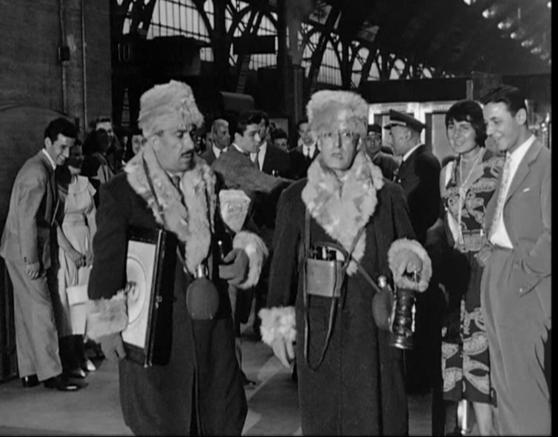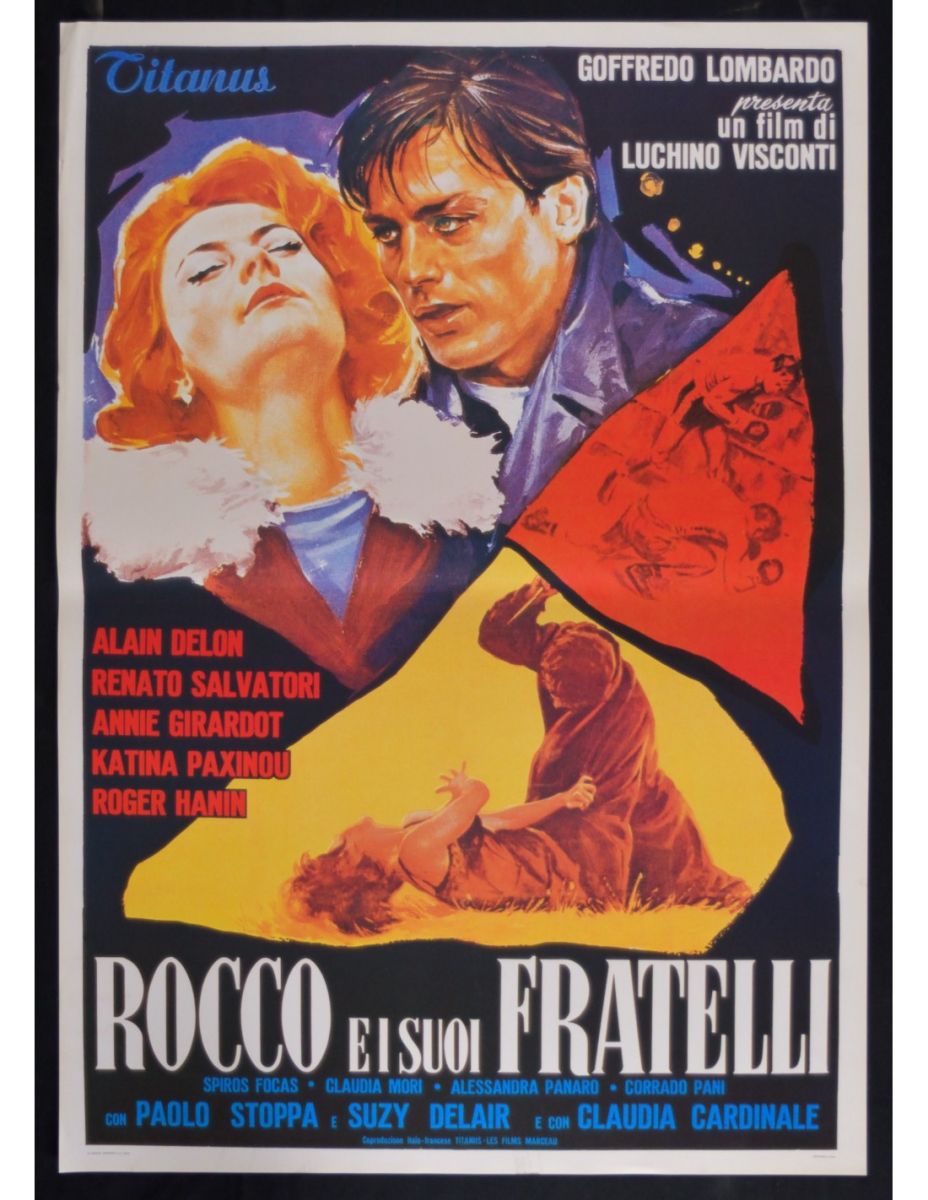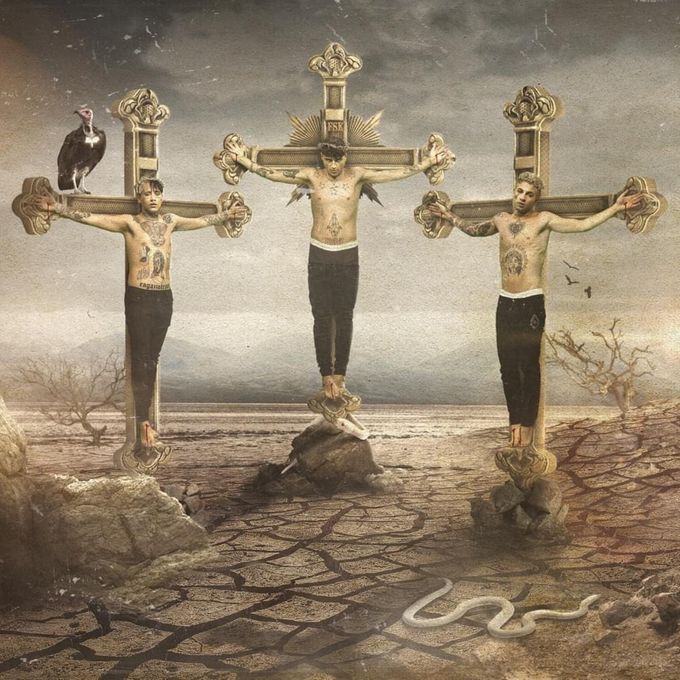terrone
by Class 3C - Liceo Volta, Turin, ItalyAbstract:
La parola 'terrone' è un termine colloquiale italiano con connotazioni storiche e culturali. Originariamente riferito alle persone provenienti dalle regioni meridionali dell'Italia, in particolare a quelle impegnate in attività agricole, si è evoluto fino a portare con sé stereotipi sia positivi che negativi. In positivo, incarna un forte legame con le tradizioni, un ricco patrimonio culinario e uno stile di vita più lento. Tuttavia, può anche essere usato come termine dispregiativo, perpetuando stereotipi di pigrizia o mancanza di raffinatezza. Il termine racchiude complesse dinamiche socio-economiche e culturali all'interno dell'Italia, riflettendo le disparità storiche tra Nord e Sud. Sebbene alcuni lo usino in modo innocuo, è fondamentale essere consapevoli del suo potenziale di rafforzamento degli stereotipi e di contributo alle tensioni regionali nel contesto italiano.
The term 'terrone' is an Italian colloquial term with historical and cultural connotations. Originally referring to people from the Southern regions of Italy, particularly those engaged in agricultural activities, it has evolved to carry both positive and negative stereotypes. Positively, it embodies a strong connection to traditions, rich culinary heritage, and a slow-paced lifestyle. However, it can also be used as a derogatory term, perpetuating stereotypes of laziness or lack of sophistication. The term encapsulates complex socio-economic and cultural dynamics within Italy, reflecting historical disparities between the North and South. While some may use it to mean no harm or malice, it's crucial to be mindful of its potential to reinforce stereotypes and contribute to regional tensions within the Italian context.
Etymology:
The origin of the word terrone is very ancient due to its presence in most neo-latin languages, such as Italian, French, Spanish, Romanian, and Portuguese, though with slightly different meanings.
It is certainly a derivative of 'land' [terra], initially indicating a heap of dirt resoultimg from ploughing, which was probably later used as a name for farmers to the point of even becoming a surname, such as in 'Terrizzi' (in the South of Italy) and in 'Terreno' (in the North of Italy). Over time the word seems to have lost, at least in the Northern area of Italy, this meaning (heap of dirt) to mean 'someone who works the land'.
As the term 'terrone' was traditionally conceived by people who live in the Northern part of Italy to taunt primarily the people who work on the land in the South, in Southern Italy this word is not attested in use.
Two hypotheses can be supported:
- the word was used to indicate peasants without a negative connotation, therefore used to define primarily emigrants from the South as agricultural workers;
- from the 20th century the term 'terrone' began to be used in the regions of Northern Italy with particular reference to Southern emigrants looking for work. The term spread in the large urban centers of Northern Italy with often highly derogatory and negative connotations and therefore the name would originate as an offense aimed at those who adopted less sophisticated behaviors considered typical of peasants.
Cultural specificity:
The term 'terrone' has become an idiomatic Italian expression, whose use can vary considerably depending on the context and the intention: it can be employed as a joking appelation among friends, but it can also be derogatory term when used by the inhabitants of Northern Italy with the intent to belittle people coming from the South.
In the period following the Second World War (1946-1970), a large number of Southern Italians migrated to the North in search of work. The Northern inhabitants, noticing the cultural differences, the limited level of education (many were illiterate), and the difficult economic conditions of the migrants, began to denigrate them more intensely.
Communication strategies:
Social media
On social media like Instagram, Tik Tok and others, the word 'terrone' is used in different ways, including:
- to make fun or deprecate the life, traditions, dialect, food, music and peculiarities of terroni ['terroni' is the plural of 'terrone'] often in contrast with those of Northerners. For example, there are videos that show the differences between Christmas in the North and in the South of Italy, of the terroni's reactions to comical or embarrassing situations, or videos comparing the way in which terroni and polentoni speak ['polentoni' is how the people of the North are called by those from the South, the word being a combination of 'polenta' - the cornmeal mush that has been traditionally the main dish of the poorest areas of the North - and 'lento' as the people of the North are considered slow and less smart by the people of the South];
- to denounce and fight the prejudices, discrimination, injustices and inequalities that Southerners still suffer in Italy today, both at a social and institutional level. For example, there are posts criticizing government policies, media abuse, police violence, and economic disparities.
In conclusion, the use of the word 'terrone' on social media is varied and complex. It is important to consider the context and the intention when using this term.
We can find many examples of the discriminatory use of the word 'terrone' on TikTok, but also some opposite cases as in the video here below:
This is an ironic video about the people who resonate with or as 'terroni’. The trend is simplistic in the sense just a solo word is showcased but when accompanied by the song it acts as an explanation. In this particular video the song chosen is to be understood in a sarcastic tone. The sarcasm is in the lyrics formidable [formidable]. It could be intedend as an offense towards the ‘terroni’, implying that if you are or resonate with the term terrone you are not formidable. Yet, it could also be interpreted otherwise: by the juxtaposition of the word 'formidable' in the song and the word 'terrone' cast on a stormy night, the video displays an unsual representation of a terrone as a powerful force of nature.
Films
Terroni - Il Cammino Della Speranza [Terroni - The Path of Hope] (Italy 1950; dir: Pietro Germi). A group of Sicilian miners left unemployed after the closure of a solfatara are contacted by a shady scammer, who, in exchange of their savings, promises to lead them to France to get a safer work and a better existence.
Totò e Peppino e la malafemmina [Totò, Peppino and the malafemmina] (Italy 1956; dir: Camillo Mastrocinque). The two brothers Antonio and Peppino Capone, landowners, Southerners and peasants, must 'call to order' the nephew Gianni who, in Milan, is pursuing a degree in Medicine. Gianni is young and is in love with Marisa, a show dancer. In fact, he left Naples to follow her in Milan. In a very iconic scene Totò and Peppino arrive in Milan wearing winter clothes as if they were heading for an Artic expedition, and they address a policeman to ask him some info in an invented northern language. |  |
 | Rocco e i suoi fratelli [Rocco and his brothers] (Italy 1960; dir: Luchino Visconti). A masterpiece of the Italian neorealism depicts the tragic destiny of a Southern family that moves to Milan in search of better job opportunities. Together with the rejection and the difficulties of integration they have to face, the rivalry between the two brothers Rocco and Simone, both in love with a prostitute, gives rise to tragic consequences. |
Quo Vado (Italy 2016; dir: Gennaro Nunziante). The film is about a man obsessed with having a permanent job. When, due to a public administration reform, Checco Zalone, the main character, and many other public employees risk losing their jobs, the protagonist will do everything to maintain his comfortable position and thoughless life-style. Checco is in his 40s, the typical mamma's boy who enjoys his status of dependency and irresponsibility. Yet, he will finally enlarge his views on life and take up responsibilities thanks to the encounter with a young activist.
This is racism - CIAO TERRONI (Italy 2018; dir: Francesco Imperato) is a short film designed to remind the prejudices to which people from Southern Italy were subject. The protagonist, a man from Veneto (North-East of Italy) who is proudly tied to his land, heaps an invective against all those who came from Southern Italy, denigrating their economic and social condition, mocking their physical conformation and claiming that they tighten "alliances with gypsies". Yet, his words are also a bitter reflection on how things have changed when the 'new immigrants' (the Blacks) arrived, and how they suddenly "made us all Italians". This short video is thus a provocative reminder of how racism reproduces itself, though adopting different forms and targeting different groups.
Belli Ciao [Bye, beauties] (Italy 2022 dir: Gennaro Nunziante). The film is focused on Pio and Amadeo, two inseparable friends until the day of Maturity [the exam that, in Italy, concludes the high school years]. Such exam marks the fatal decision that many young people of the South of Italy have to face, that is to decide whether to stay in their home village or migrate to the North. Pio leaves for Milan, while Amedeo remains in Puglia. Life will make them rencounter after many years: Pio, now an apparently successful manager, and Amedeo a sanitary ware shop keeper. Yet, things are very different from their appearance, and after a series of adventures ther two friends reconcile.
All these films depict the contrast between Northern and Southern Italy, the place where, stereotypically, the terroni come from.
However, the tone by which this contrast is presented varies very much. In the first and in the third movie (Terroni and Rocco e i suoi fratelli) prevails a dramatic register that portrays the contrast between the hope for a better life that characterized the internal migration from Southern Italy in the 1950s-1970s and the encounter with violent forms of discrimination often leading to tragedy. The second and the fourth movie (Totò, Peppino e la malafemmina and Quo vado) play on a more ironic tone, allowing the audience to approach the subject with irony and hilarity. The short movie CIAO TERRONI is a bitter reflection on the multiple faces of racism, while the movie Belli ciao - which, in the title, explicitly refers to the world-famous Italian liberation song Bella ciao - deals with the stereotypical contrast between the supposed charactistics of the North (business, money, success) in contrast with those of the South (inaction, stagnation, poverty), but at the same time it affirms the importance of authentic human bonds, such as friendship.
Subversion:
The examples below reveal two opposite ways of reappropriating the stereotypes and the stigma connected with the word terrone through different acts of strategic self-othering: by reclaiming (and repeating) the word for themselves, the terroni stretch it to its extremes portraying how it can result in hopelessness and suffering (in the first song) as well as in a joyful self-irony (in the second one).
Songs with terrone
- Tre terroni a Milano [Three terroni in Milan] by FSK e Greg Willen
”Tre terroni a Milano, che cosa ci fanno? Che cosa ci fanno?" [Three terroni in Milan, what they doing here? What they doing here?]
The whole song repeats obsessively this question to stress the sense of not-belonging of the people from the South when they are far from their origins - and to which, as text says, the protagonist cannot go back.
The terroni are here represented on a cross following the typical Catholic iconography of the crucifixion. The image clearly points out to martyrdom, while the text suggests that the only form of empowerment for the terroni is through illegal activities - mainly, drug dealing.
| 
|
"Ho pregato mio, Padre Pio" [I prayed for my Father, Padre Pio]
Padre Pio is very important in the South of Italy for various reasons: he was born and lived in the South specifically in Pietralcina, in the province of Benevento. Many people feel close to this friar, especially for the various miracles that they believe he performed during his life and after his death.
Yet, the text of the song says that though the protagonist of the song has prayed for him many times, Padre Pio did not appear to him and made no miracle for him.
The whole song is a bitter and obsessive reflection of the sense of of feeling misplaced, abandoned, and doomed to failure.
------
- Il terrone va di moda [The terrone is trendy] by il Pagante
The second example reverses the stereotypes on the terroni precisely by displaying all those ascribed to them. It is a self-ironic subversion as all the characteristics attributed to the terrone are reappropriated with self-worth through an explicit 'terrone-pride' operation.
 | The song portrays the stereotypical characteristics associated to the typical terrone. "Cena in famiglia dove non ci si annoia/ A tavola nipoti, cugini e la nuora" [Dinner with family where one doesn't get bored. At the table, grandchildren, cousins, and the daughter-in-law]: this shows the tradition of large family gatherings that last for hours and involve a lot of eating. "Quando parla escono i sottotitoli" [When he speaks, the subtitles appear]: this indicates that people from the South speak in a dialect which is often difficult to understand. "In tre in moto senza il casco/Scatta il verde e suona il clacson/Riconosci il personaggio/Con l'applauso all'atterraggio" [Three on a motorcycle without helmets, the light turns green, and the horn honks. You recognize the character with applause at the landing]: this describes reckless behavior on a motorcycle and the recognition of the character's actions with applause when the plane lands. |
Discussion:
- Is there a group of people in your country who feels 'superior' to other social groups?
- Does the stereotype rely on a geographical divide?
- How is this group stereotyped as 'other'?
- Has this group managed to reappropriate the stereotypes?
- Could you think of any example of strategic self-othering? Under which circumustances and for which reasons do you think that individuals or groups do that?
References/Further Readings:
Films:
- Belli Ciao [Bye, beauties], Italy 2022. Dir: Gennaro Nunziante. Starring: Rosa Diletta, Amedeo Grieco, Pio D'Antini.
- Quo Vado, Italy 2016. Dir: Gennaro Nunziante. Starring: Checco Zalone, Eleonora Giovanardi, Sonia Bergamasco, Lino Banfi.
- Rocco e i suoi fratelli [Rocco and his brothers], Italy 1960. Dir: Luchino Visconti. Starring: Alain Delon, Renayo Salvatori, Annie Girardot, Claudia Cardinale.
- Terroni - Il Cammino Della Speranza [Terroni - The Path of Hope], Italy 1950. Dir: Pietro Germi. Starring: Raf Vallone, Saro Urzì, Elena Varzi.
- This is racism - CIAO TERRONI, Italy 2018. Dir: Francesco Imperato.
https://www.youtube.com/watch?v=vEtp8qpvcec - Totò e Peppino e la malafemmina [Totò, Peppino and the malafemmina], Italy 1956. Dir: Camillo Mastrocinque. Starring: Totò, Peppino De Filippo, Marisa Floria, Teddy Reno.
Songs:
- Il terrone va di moda [The terrone is trendy], 2018, by il Pagante.
https://www.youtube.com/watch?v=G658GR8Rlp4 - Tre terroni a Milano [Three terroni in Milan], 2020, by FSK e Greg Willen.
https://youtu.be/UvGTamjbCqA?si=xUtZ4fS9dgRfC0x0
How to cite this entry:
Class 3C - Liceo Volta, Turin, Italy. (2024). Terrone. In Other Words. A Contextualized Dictionary to Problematize Otherness. Published: 07 June 2024. [https://www.iowdictionary.org/word/terrone, accessed: 03 March 2026]
